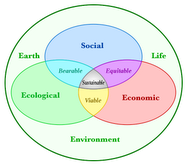Current trends in hotel sustainability 
ShreSustainability
in the hospitality industry used to mean supplying the high-end
amenities that visitors wanted at the lowest possible cost, regardless
of who that meant doing business with. Okay, so it wasn’t exactly like
tiny shampoo bottles were falling off the back of trucks, but the
majority of hoteliers in our parent’s and grandparent’s generations
probably weren’t too worried about the environmental impact of their
operations. These days it’s a different story. With more and more
consumers looking for environmentally and socially responsible vendors,
even when they travel (hence the rise in popularity of eco-tourism),
anyone running a one-off resort or a hotel
chain needs to understand that sustainability has become an important
part of doing business. And those that continue to ignore issues like
conservation and fair trade in their industry are likely doomed to
failure.
However, the demand for eco-friendliness can be difficult to comply
with. For one thing, many businesses don’t quite know where to start.
And even when they’ve installed recycling bins and low-flow toilets,
they might be scratching their heads as to where to go next. For many
the problem is multi-faceted, and the learning curve can be especially
steep for international operations. While some countries have strict
regulations in place to help industry operate in a less harmful manner,
other nations have no (or few) restrictions when it comes to
environmental protection. For many businesses this raises a conundrum.
Should you follow the rules of the country you’re operating in or strive
for the highest possible standards, despite the additional (and
unnecessary) cost? While there’s something to be said for giving the
people what they want, you can’t afford to let your competitors undercut
you simply because you have scruples.

Image via Wikipedia
And then, of course, there is the issue of quantifying your efforts. How
do you demonstrate to patrons that you are actually running a
sustainable business? While you can shoot for any number of
environmental certifications (and claim bragging rights once you’ve
secured them) most people don’t know what such a seal of approval means
in terms of your efforts on behalf of the environment. And if you fail
to attain certification of some sort, will tree-hugging tourists even
take you seriously? It’s not like they’re going to take the time to look
over your water and electric reports to see that you are indeed
conserving, or take you at your word that you’ve inspected all of your
manufacturers to ensure that there’s nothing hinky going on at their
factories (like child labor, for example).
Whether you’re offering beach bungalows in St. Kitts or cozy cottages in St Anton am Arlberg,
you’re likely facing similar issues when it comes to the question of
sustainability. And since there is no set scale for international
businesses to meet benchmarks for eco-friendly operations, you’re pretty
much going to have to wing it. But if you really want to green up the
works and create the sustainable options that more travelers these days
are seeking, your best bet is probably to look into various forms of
certification (which do come with set standards) in order to ensure
quantifiable results and a seal of approval that consumers can at least
see (even if they have no real idea what it means).

